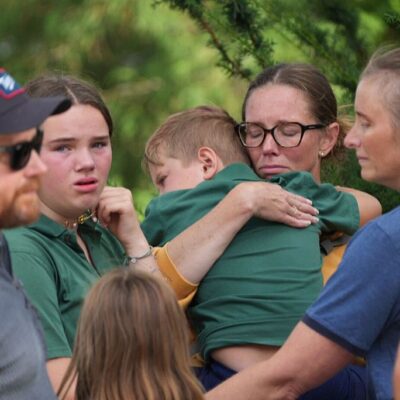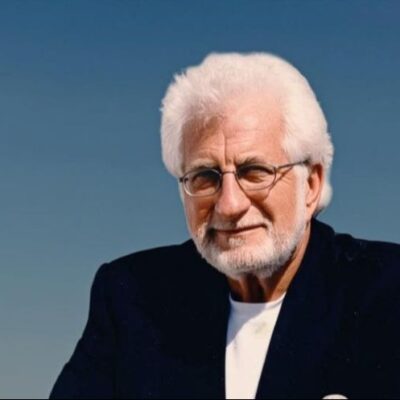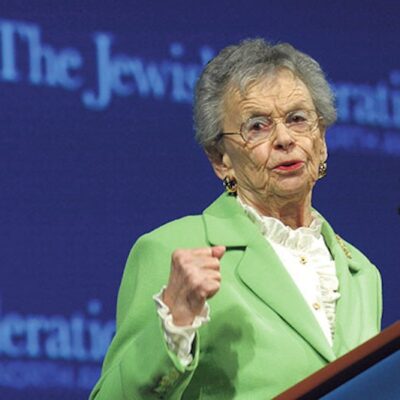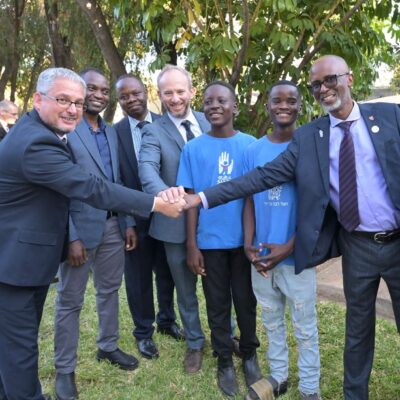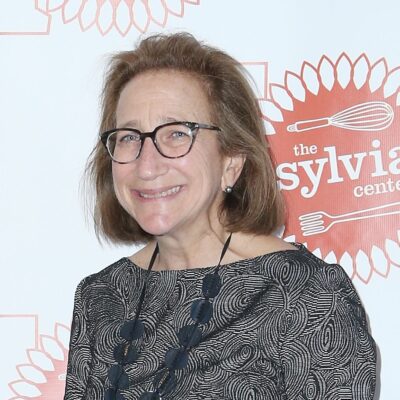Opinion
READER RESPONDS
Will USY’s restructuring save Conservative Judaism?
My USY region was everything to me throughout high school. I served for two terms on the regional executive board, including one term as regional president, and I still have the notoriously long regional song memorized (as I anticipate I will for the rest of my life). Pinwheel USY, the organization’s Pacific Northwest region, was the start of my Jewish leadership journey.
Last month, USY announced a new strategic plan to remove its regional structure. I want to be mad, but the proposal seems reasonable and logical. The structure that worked for teens in the 1970s should not be expected to work for today’s teens and today’s Jewish landscape. This is a different generation with different needs.

Courtesy/USY
Nevertheless, I have a lot of questions: How is USY going to carry out this plan and meet its goals? What effect will these changes have on the teens? Will this plan actually save an organization that is near and dear to the hearts of so many?
In the course of my studies for my master’s degree from the Hornstein Program for Jewish Professional Leadership at Brandeis University, I researched the synagogue-affiliated, non-Orthodox youth groups NFTY and USY and their effect on Jewish identity formation. Using a volunteer sample of NFTY and USY alumni, I assessed how different factors affected participants’ satisfaction levels with aspects of youth group programming and Jewish practice. When USY announced its new strategic plan just three weeks after I defended my thesis, I was curious how the plan would compare with my findings.
USY’s new plan focuses on three programmatic areas: immersive experiences; chapter and inter-chapter outreach and support; and digital programming.
Immersive experiences are a core part of the USY framework: Nearly 30% of USY alumni in my study cited an immersive experience as their most positive memory from USY. Since conventions are now open to USYers nationwide rather than regionally, I am concerned that USYers will travel less, thereby seeing their friends less and feeling less connected. Traveling from one coast to the other is no small ordeal, and sending teenagers across the country alone can be nerve-wracking (at best) for parents. These conventions will likely vary in location, so some will require less travel than others, but I worry each USYer will actually end up attending fewer conventions than before the restructure, especially USYers from areas with smaller Jewish communities or from smaller metro areas. Moreover, this is all under the misguided assumption that families will be able to afford sending their children to these conventions, especially with added travel costs.
Regional identity has been crucial in keeping USYers engaged. Now local chapters will be responsible for taking on a more prominent role in the structure of USY, serving as hubs for friendships and identity development. A big part of the new structure also involves training chapter advisors, which is imperative. Over half (54%) of USY alumni in my study reported that mentors were influential in their youth group experience and identity formation. Additionally, satisfaction with one’s staff members was meaningfully connected with satisfaction with many aspects of one’s USY experience, including social programming, frequency of USY meetings and programming, Israel programming and Jewish educational programming. The new strategic plan also mentions community directors, who will “foster year-round programming” in areas with “multiple thriving chapters.”
This investment in reliable and intentional structures of adult leadership is a welcome addition. My question is: How does USY plan to find these staff and pay them enough to retain them, especially given the current pipeline crisis in Jewish leadership and the limited resources that led to the restructuring in the first place? Chapter staff positions are low-paid, essentially volunteer positions, often filled by anyone who is willing to help rather than a qualified and experienced professional. Leaving so much hinging on these individuals feels like a risky move.
USY’s new plan also mentions investing in leadership training. Leadership is central to the USY experience — for instance, 88% of the USY alumni in my study held some sort of leadership role during their experience. Furthermore, leadership experiences were associated with a more positive perception of the following Jewish practices: spending time with family or friends on Shabbat, singing Jewish songs on Shabbat, taking a break from work on Shabbat, participating in social justice work and pursuing friendships with other Jews. Being involved in creating and taking ownership of programming engages teens in a unique way.
Currently, regions are a big part of USY’s leadership structure, with dozens of teens serving each year on regional executive or general boards. Will chapter leadership now take the forefront? Will teens still serve in yearly leadership terms, or will the model shift to more episodic leadership positions, such as planning one of the international conventions? Also, how will these new leaders be supervised and mentored? Mentorship and leadership are intertwined: In my study, teens with mentors had significantly higher rates of serving in leadership positions.
Only time will tell how effective USY’s new model will be. I really hope that it works. The Conservative movement has needed a revival of its youth programming for years; if we don’t address its systemic problems, it will cease to exist. USY is an essential element of the movement, allowing our youth to connect with one another and providing a space to learn, grow and ask questions. If you are looking for your next tzedakah opportunity, consider supporting your local USY travel fund to subsidize convention costs for teens in your community. If you have time to give, consider joining the youth committee at your local synagogue, either to act as adult support for your USY chapter or to support the hiring of a strong chapter advisor. Now is the time to step up: Current USYers are the future of Conservative Judaism, and it is our duty to help them thrive.
Juliana Sherer is a recent graduate of the Hornstein Program for Jewish Professional Leadership at Brandeis University. She is the incoming development coordinator at Boston University Hillel, pursuing her passion for helping the next generation of Jewish young adults thrive.

